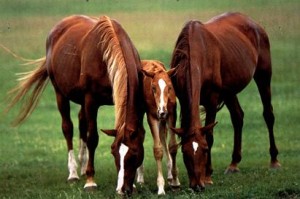
It so happened, recently, that my 10-year-old daughter and I wanted the same thing. It could have been anything — the last brownie, the window seat — but what matters is that there was only one. If our happiness depended on this one thing, there was no way we would both end up happy.
Happiness is more complicated than that, even at 10. It also happened that my daughter was having a rough day: the kind of day where the smallest things loomed large, and happiness of any kind seemed unlikely. Once we realized that only one of us could “win,” it became unlikely that either of us would end up pleased. Who wants happiness when it comes at someone else’s expense, even in a small way?
Of course I did what any parent would do: I said: “Here, you go. It’s O.K., I want you to go.” (The treat in question was a ride on a horse.) But then she did the same. “No,” she said, “you go.” And then she started crying, saying that she was “mad — but I’m not mad at you,” and left. (As I said, she was already having a rough day.)
I wanted to run after her. I wanted her to take my place, but the friend we were with stopped me. “But I won’t have fun now,” I said. “I’ll just be all unhappy.” It was that kind of day for me, too.
“Just come,” the friend said. Time, for various reasons, was limited. If I didn’t go it was likely that neither of us would. So I did. I left my child behind, probably crying, and went. I was wrong. I did have fun.
I wasn’t unhappy, or at least not for long. And when I came back, neither was she. I told her thanks for letting me go, and she said, “I’m glad you had fun.” We had a long hug, and I said it again, “Really, thank you.” I could feel her smiling, even though I couldn’t see her face. Somehow, our whole day got better.
It’s always my instinct to take the hits for my children. To step back; to say, you take it, you go, it’s O.K., I don’t mind. My daughter’s gift of a horseback ride reminded me that being the giver isn’t always the right thing. There’s a pleasure in putting aside your needs for someone else’s. Sometimes accepting someone else’s sacrifice (here, a small one, but one that meant something to her) is an act of giving, too. When they were younger, my children were always happy to accept the metaphorical last brownie. Now that they’re getting older, sometimes they want the chance to put someone else first, and the option of saying no, thank you, to the small sacrifices I offer.
My daughter might have enjoyed that short horseback ride. But she knew she would enjoy giving it to me even more. Accepting it turned out to be the best thing I could have done for us both.